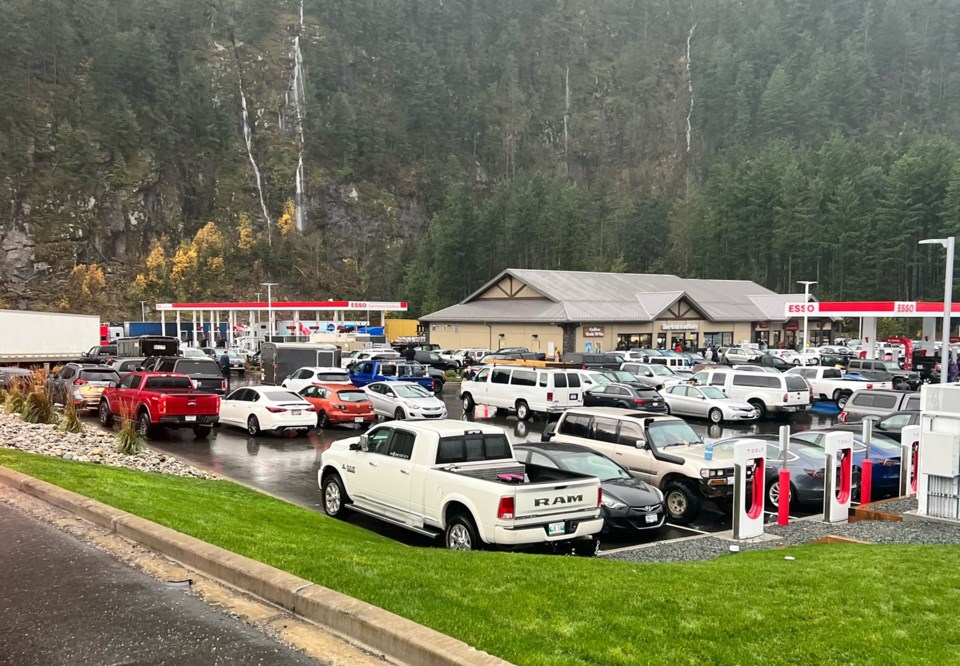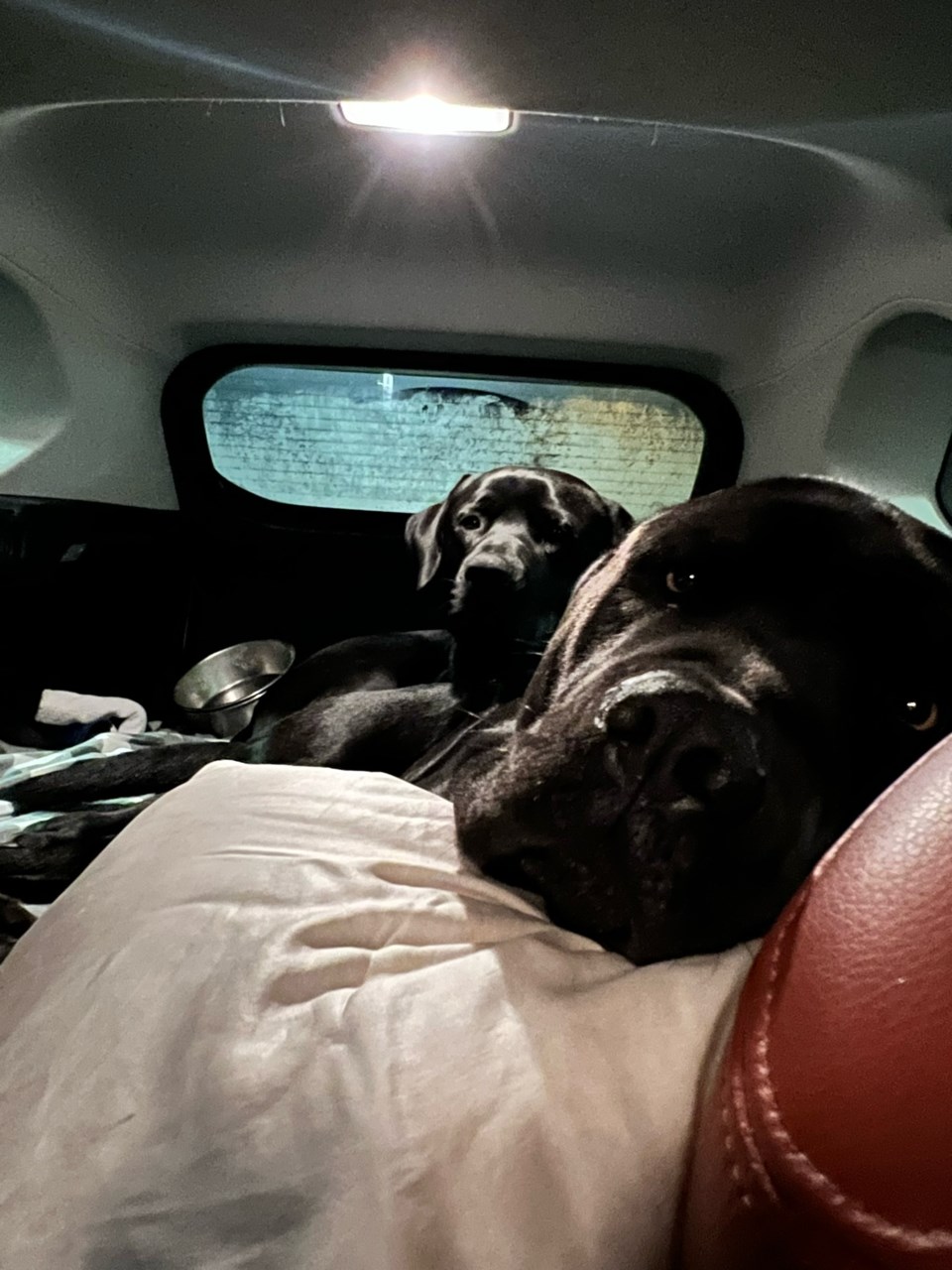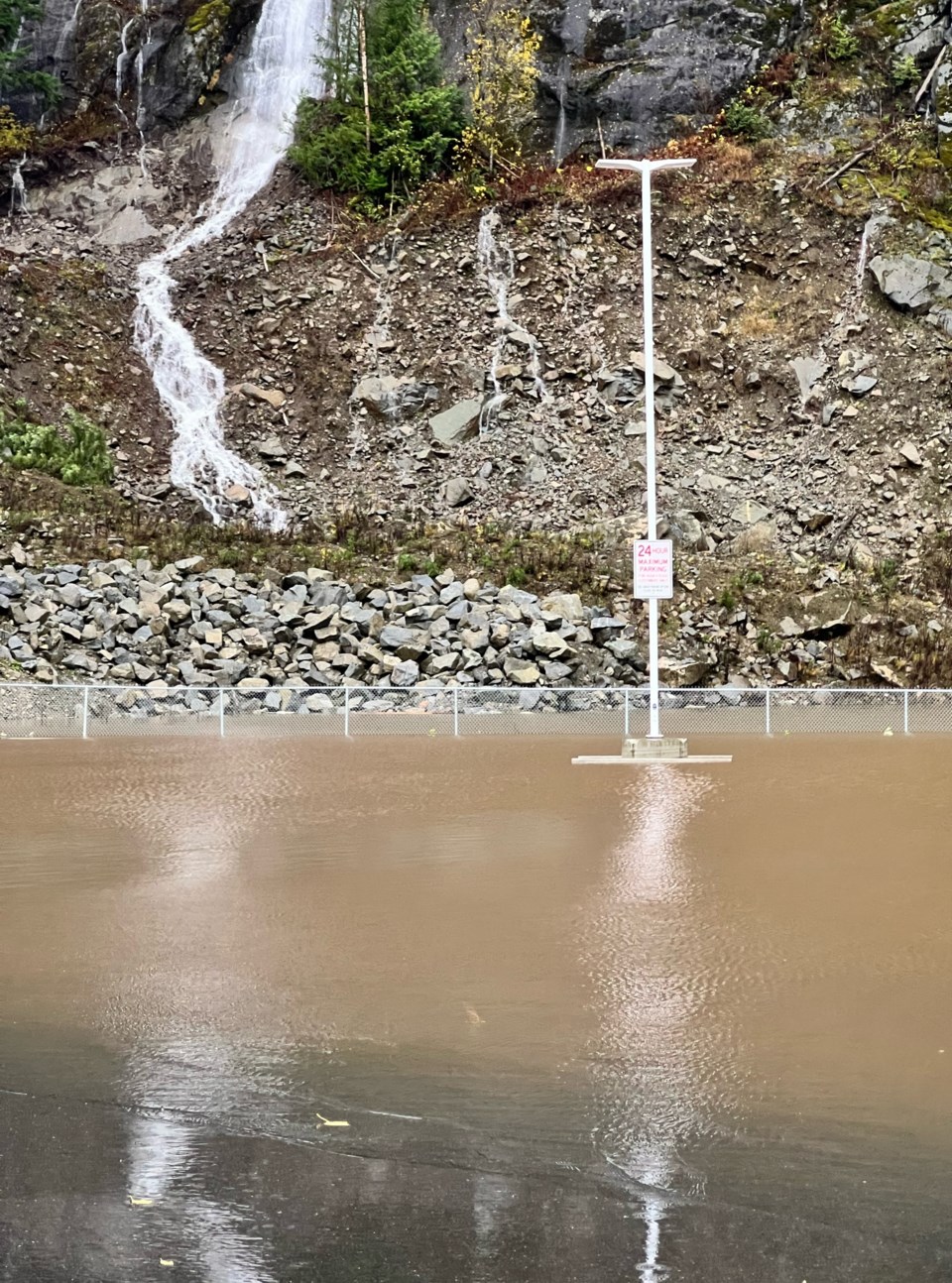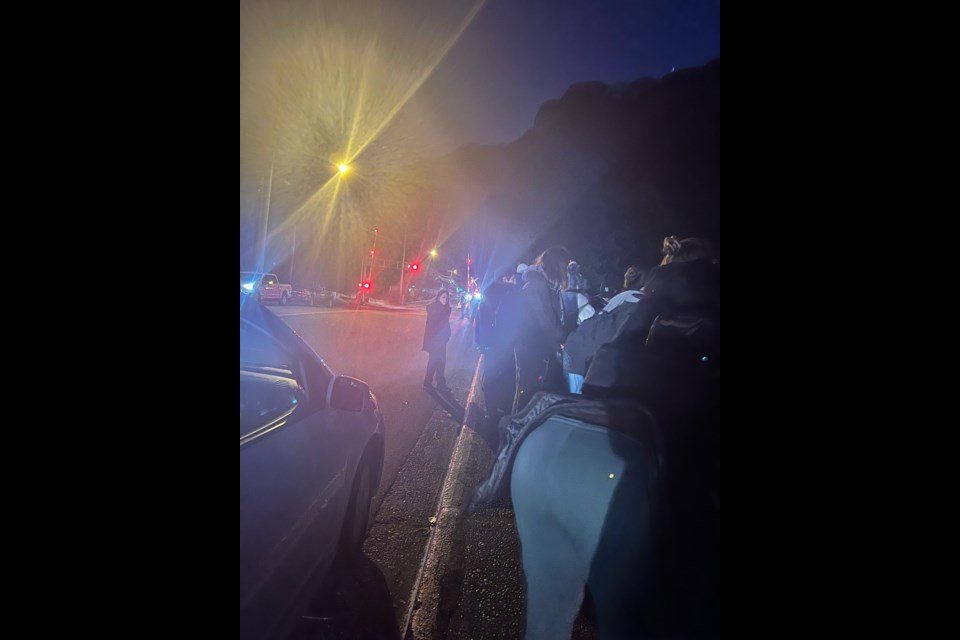A Â鶹´«Ã½Ó³»resident trying to get home from B.C.'s interior after major highways damaged by recent flooding says the experience was both a disaster in communication and environment.
Last weekend Delainy Mackie, who owns , was staying with her partner at Blue Lake, about 20 km south of Lytton. When the pair left their cabin Sunday (Nov. 14) morning they were turned back as heavy rains had flooded nearby roads. At the time it meant one more day of vacation. The next morning the power went out.
“'Okay, it's time to go,'" Mackie recalled saying to her partner the morning of Nov. 15. "We had a feeling, we didn't even really know what was going on. So we started driving, and it was the most terrifying drive I've ever done."
In separate vehicles, the couple drove 70 km south to Hope which they found also had no power. The only exception was an Esso station near Ricky’s All Day Grill where 1,200 other travellers like her had gathered in the parking lot. Together the stranded travellers waited for information that was scattered and unreliable -- when it came at all.

“It was very poorly set up,” Mackie said in an interview with Â鶹´«Ã½Ó³». “We made friends with truck drivers, they have better radios and so their information seemed to be probably the most clear, but still, not very clear.”
Even still, Mackie, her partner and their two dogs, Hank and Remy, were better off than most. While there was a high school and church nearby that offered shelter to those stranded, they decided there were others who needed the space more.

“We had clothing, we had food, we had blankets, we had beds in our vehicles so we were pretty well set up,” Mackie said, adding that Hank and Remy made for great space heaters during the two nights she slept in her vehicle.
After riding a nearly three-day adrenaline high and only walking in her front door at 4 a.m. on Thursday morning, Mackie wasn’t able to sleep. Instead, she and her partner stayed up to think the experience over.
"The government really didn't do their job,” Mackie said looking back. “There were ways to communicate or to organize because we could do it. And the locals were helping us, but our leaders weren't helping us."

Canadian Air Force assets had been involved in rescues on Nov. 15, 16 but the B.C. government formally requested federal military support on Nov. 17.
‘Just real, real humans’
The help from locals included the owners at Ricky’s restaurant who Mackie says made special meals and opened their doors for people to sleep. Other locals opened their homes to the travellers, offering their showers, food and places to sleep.
When speaking about the outpouring of kindness from the locals, Mackie’s voice started to crack with emotion.
"You don't get that feel in a big city and I don't know if people will pull together in a big city for you like that," Mackie said. "Just real, real humans."
The large influx of people to Hope created a new problem though as a local grocery store was left practically barren by the second day.
"They just need their life rebuilt for them because we came and took everything," Mackie said.
How to help
On Wednesday morning the rush for Mackie to get back home and to her children was on. Eventually she wound up leaving her car in Hope and boarding a train to Â鶹´«Ã½Ó³»and taking a cab the rest of the way home. Despite the effort it took to get there, being home is slightly bittersweet for Mackie.
"I feel kind of weird that there's still people there and that I can't help them," she said.
However, she says the best way to help those who are still stranded is by making donations to local organizations.
"Donating to the high school, donating to the churches because they're the ones doing all the work," she said. “Hope needs some love given back to them.”
can be made through the school’s website. A GoFundMe page has been set up to has been set up along with a to help the area.




